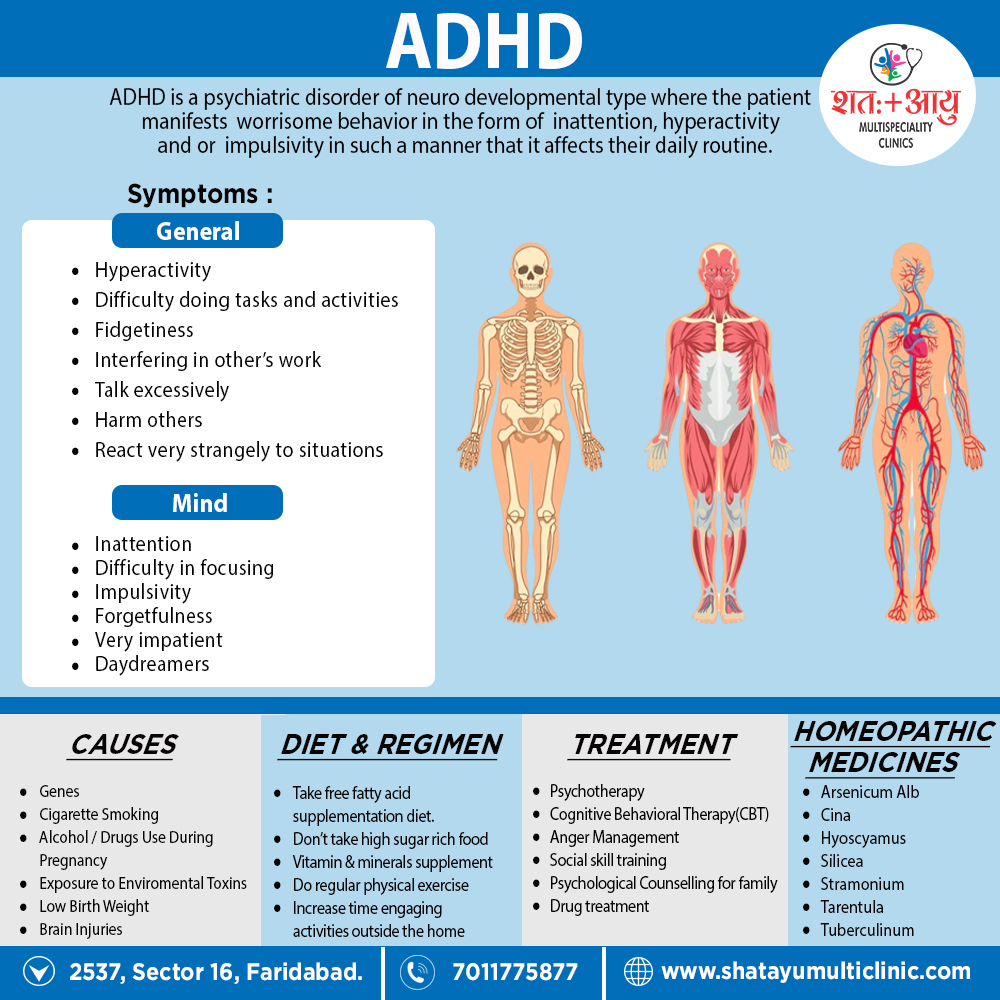Inattention i.e.
- Easy distraction
- Day dreaming
- Difficulty in focusing
Hyperactivity i.e.
- Fidgety, continuous motion
- Non-stop talking
- Difficulty doing tasks and activities
Impulsivity i.e.
- Interfering in others’ work
- Very impatient
- React very strangely to situations and can harm others
Here are 14 common signs of ADHD in children:
1. Self-focused behavior i.e.
A common sign of ADHD is what looks like an inability to recognize other people’s needs and desires. After that, this can lead to the next two signs.
2. Interrupting i.e.
Self-focused behavior may cause a child with ADHD to interrupt others while they’re talking or butt into conversations or games they’re not part of.
3. Trouble waiting their turn i.e.
Kids with ADHD may have trouble waiting their turn during classroom activities or when playing games with other children.
4. Emotional turmoil i.e.
A child with ADHD may have trouble keeping their emotions in check. In Detail, They may have outbursts of anger at inappropriate times. Younger children may have temper tantrums.
5. Fidgetiness i.e.
Children with ADHD often can’t sit still. They may try to get up and run around, fidget, or squirm in their chair when forced to sit.
6. Problems playing quietly i.e.
In Brief, fidgetiness can make it difficult for kids with ADHD to play quietly or engage calmly in leisure activities.
7. Unfinished tasks i.e.
A child with ADHD may show interest in lots of different things, but they may have problems finishing them. For example, they may start projects, chores, or homework, but move on to the next thing that catches their interest before finishing.
8. Lack of focus i.e.
A child with ADHD may have trouble paying attention, even when someone is speaking directly to them. They’ll say they heard you, but they won’t be able to repeat back to you what you just said.
9. Avoidance of tasks needing extended mental effort i.e.
This same lack of focus can cause a child to avoid activities that require a sustained mental effort, such as paying attention in class or doing homework.
10. Mistakes i.e.
Children with ADHD can have trouble following instructions that require planning or executing a plan. This can then lead to careless mistakes, but it doesn’t indicate laziness or a lack of intelligence.
11. Daydreaming i.e.
Children with ADHD aren’t always rambunctious and loud. Another sign of ADHD is being quieter and less involved than other kids. A child with ADHD may stare into space, daydream, and ignore what’s going on around them.
12. Trouble getting organized i.e.
A child with ADHD may have trouble keeping track of tasks and activities. After all, this may cause problems at school, as they can find it hard to prioritize homework, school projects, and other assignments.
13. Forgetfulness i.e.
Kids with ADHD may be forgetful in daily activities. They may forget to do chores or their homework. They may also lose things often, such as toys.
14. Symptoms in multiple settings i.e.
A child with ADHD will show symptoms of the condition in more than one setting. For instance, they may show lack of focus both in school and at home.

